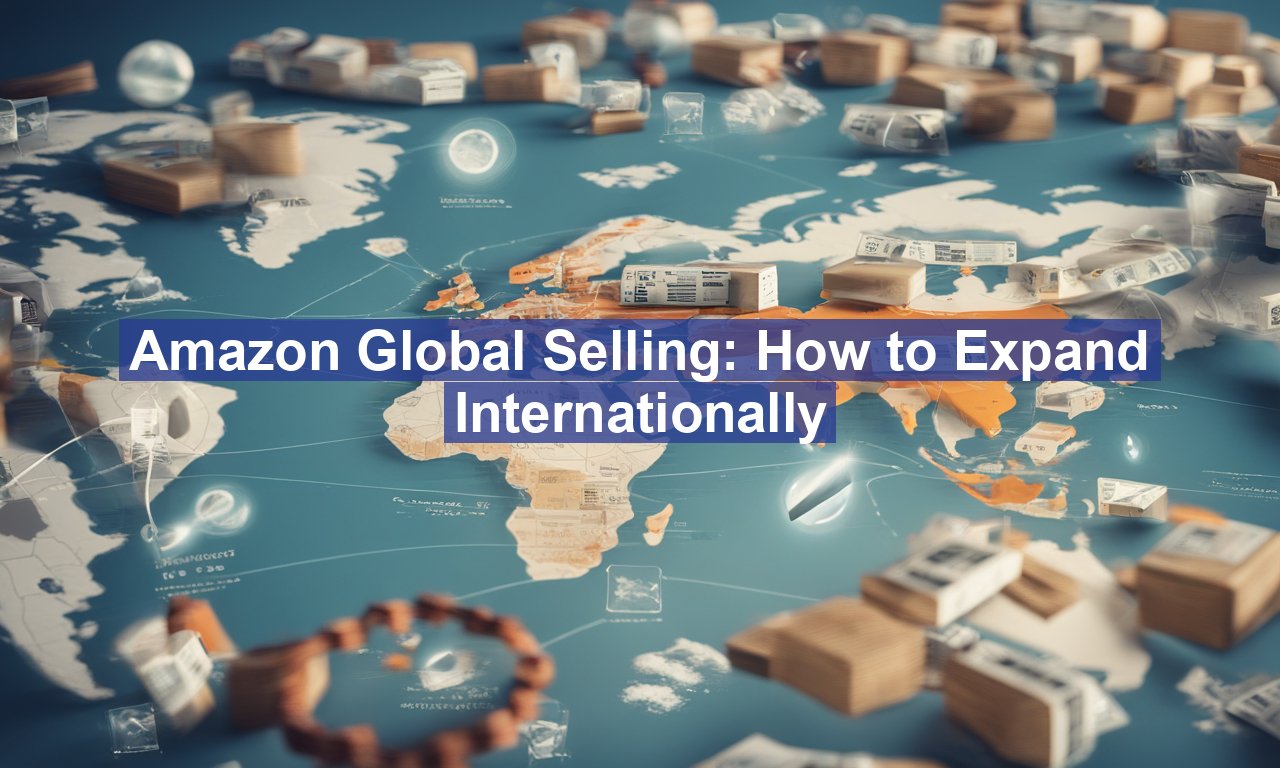Amazon global selling: how to expand internationally Amazon is already a colossal force in the world of e-commerce, and the opportunity to expand your business internationally through Amazon Global Selling is too enticing to ignore. Imagine your brand reaching millions of new customers across different continents with seamless access. But how do you take that leap? Let’s dive deeply into the world of Amazon Global Selling to understand the benefits, challenges, and strategies that will equip you to go global effectively.
Why Consider Amazon Global Selling: How to Expand Internationally?
Selling globally can transform your business in several ways. Here’s why it’s an attractive option:
- Access to a Broader Audience: Expand beyond local boundaries and tap into international markets with millions of potential customers.
- Diversification: Minimize dependency on a single market and reduce risks related to economic or seasonal downturns.
- Brand Recognition: Establish your brand presence internationally, gaining credibility and recognition on a global scale.
With these advantages in mind, Amazon Global Selling becomes a strategic move for ambitious sellers wanting to elevate their business to new heights.
Understanding the Global Selling Process
What does it take to begin selling internationally with Amazon? Here’s a step-by-step guide:
- Create a Global Selling Account: Once you’ve decided to sell internationally, you need to register in the marketplace of the region you wish to target. This might mean creating separate seller accounts for marketplaces like Amazon Europe, Amazon Japan, or Amazon India.
- Product Listings and Localization: It’s vital to ensure your product listings are accurately translated and resonate with the target audience. Localization includes everything from language to cultural understanding and compliance with local laws.
- Fulfillment Options: Decide on your fulfillment method – Fulfillment by Amazon (FBA) or Merchant Fulfilled Network (MFN). FBA can simplify logistics by using Amazon’s trusted infrastructure, while MFN allows you to maintain control over the shipping process.
- Compliance and Regulations: Navigate the intricacies of international trade laws, tariffs, and import/export duties. Research thoroughly or consult with an expert to ensure compliance.
- Pricing Strategy: Consider local pricing trends, currency conversions, and local taxes to ensure your pricing is competitive yet profitable.
Overcoming Challenges in Global Selling
Expanding globally comes with its share of hurdles. Here are a few challenges and how they can be mitigated:
- Cultural Nuances: Understanding cultural differences is crucial. What works in one country might not job in another. Localization & cultural sensitivity are key to success.
- Logistical Complexities: International shipping adds layers of complexity. Leveraging Amazon’s vast network through FBA can simplify this process. For more insights, you might want to explore Amazon’s logistics services.
- Taxation and Compliance: Different countries have their own set of tax obligations. Consulting with a tax advisor familiar with international sales is often necessary.
- Market Research: Extensive research is required to understand new markets thoroughly. Use tools provided by Amazon as well as external surveys and studies to gain deeper insights.
Strategies for Successful International Expansion
Expanding globally isn’t just about listing your products in another country—it’s about doing it strategically and effectively. Here are some strategy to help you succeed:
- Thorough Market Analysis: Use Amazon’s resources alongside services like Google Trends to understand product demand and competition in the target region.
- Efficient Customer Service: Offer exemplary customer service tailored to each region. Consider language barriers & time zone differences in your strategy.
- Robust Marketing Plan: Marketing is not one-size-fits-all. Invest in localized advertising campaigns and collaborate with local influencers to create a buzz around your brand.
- Assess and Adapt: Regularly evaluate the performance data provided by Amazon. Adapt your strategies based on feedback & market dynamics to stay ahead.
- Leverage Reviews and Feedback: Social proof is powerful, particularly in international markets where brand recognition might be low. Encourage satisfied customers to leave reviews and pay attention to feedback to improve offerings continually.
The Bottom Line
Amazon Global Selling: how to expand internationally presents a golden opportunity to transcend international borders and grow your business on a massive scale. Whether you’re a small business exploring new markets or an established brand seeking additional international presence, understanding the ecosystem and leveraging the tools available is crucial.
Balance the excitement of global expansion with the practicalities of market research, compliance, and strategic marketing. You might want to delve deeper into the intricacies of international e-commerce by browsing through resources like Statista’s e-commerce insights or McKinsey & Company’s marketing insights. By doing so, you’ll position your business to not only enter but thrive in the global marketplace. Remember, with the right strategy, the world is your marketplace!


